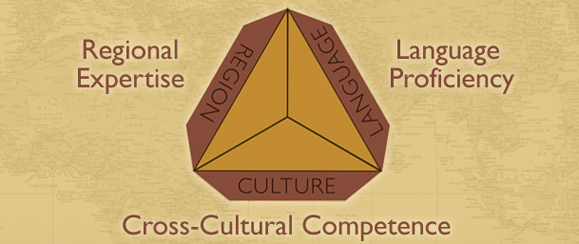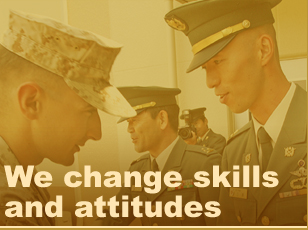Our Approach
Great learning solutions are active and goal-oriented—engagement, retention and productivity go up when learners are solving problems in real world contexts.
Our solutions address all three components of intercultural effectiveness:
Cross-cultural competence
Knowledge about how cultures differ, skills like building rapport, and attitudes such as openness have been shown to be vital to success in cross-cultural situations.
We’ve worked on mapping these areas to specific mission-critical behaviors, helping us develop focused training with real-world impact. Our scenarios have been successfully used by JCISFA to train NATO advisers and have been included in the culture curriculum at the Fort Huachuca NCO Academy.
Regional expertise
Soldiers need to know all they can about where they’re going and who they’ll be interacting with. To identify the vital information, we’ve interviewed scores of soldiers. We’re learning what information is most useful to them, when it should be made available, and how it should be delivered.
Language proficiency
In our interviews, soldiers repeatedly tell us that language proficiency is invaluable. It helps soldiers evaluate interpreters, put discussions in context, and build rapport.
Rather than overloading soldiers with more information than they need, we develop task-specific language training. To identify what a soldier needs to know, we focus on frequency of use and the soldier’s role.

